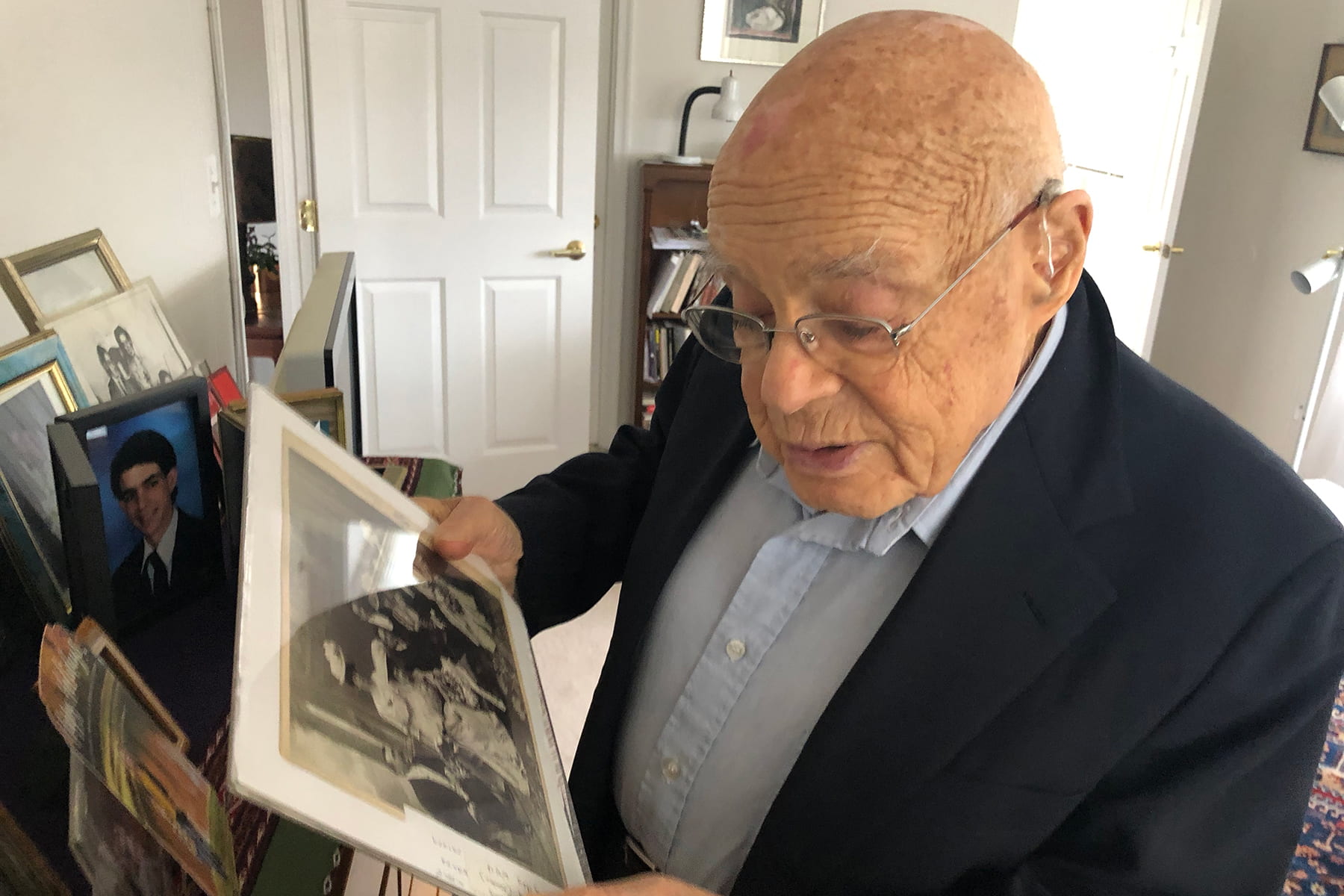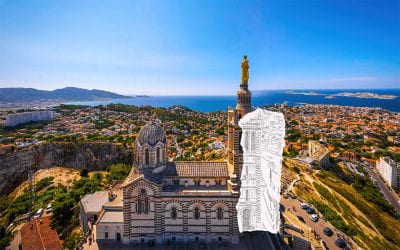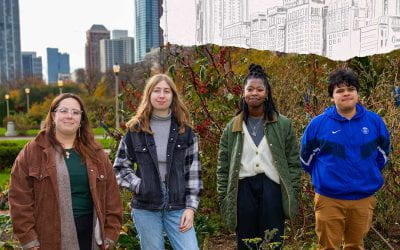Video: John Kafka and the YMCA College
Alum tells his story of escaping the Nazi regime and starting over in ChicagoBefore there was Roosevelt University, there was Central YMCA College.
The Central Y opened in 1922, when antisemitism still plagued Chicago. Jews were barred many from law firms, hotels and country clubs, and limited at prestigious universities. “Central Y made it possible for many Jewish youth to take the required pre-med courses for acceptance into medical schools,” wrote alum Konrad Parker. “Many prominent Chicago doctors started their careers there.”
One was John Kafka (BA Psychology, ’44). Kafka was studying at a French boarding school when the Nazi regime annexed his home country of Austria. France began detaining refugees in internment camps. “I was an Austrian citizen and there was no more Austria,” he said. “I was considered an enemy alien.”
Kafka and his mother escaped on the second-to-last boat before the Nazis invaded, fleeing from a Paris under blackout restrictions. In contrast, the bright lights of Chicago seemed audacious.
“Dr. Sparling’s encouragement opened the door to professional development for myself and for many of the other refugee-immigrants in my classes.”
Dr. John Kafka
(BA Psychology, ’44)
In Chicago, Kafka worked odd jobs during the day and took night classes at YMCA College. The school’s president, Edward Sparling, took an interest in his story. Sparling connected him with a Midtown banker who gave him a partial scholarship. “Dr. Sparling’s encouragement… opened the door to professional development for myself and for many of the other refugee-immigrants in my classes,” Kafka wrote.
As an immigrant, Kafka saw the Central Y’s “extreme variety of classmates” as a given of American life. But medical school shone a stark light on the pervasiveness of discrimination. At Emory University, Kafka rushed a fraternity until its members discovered he was Jewish. The institution would remain racially segregated until 1963.

No limits
Despite the progressive Central Y faculty, discrimination remained entrenched at the school. Black students weren’t allowed to compete in athletics or use the swimming pool, and the Board planned to impose new admission restrictions. The faculty and students walked out to create a new school, without limits.
Roosevelt University became a haven for veterans, refugees and Jews in the wake of World War II. Professor Emanuel Merdinger told his classes how his knowledge of fermentation chemistry helped him survive in a concentration camp. He made alcohol for the guards from food scraps, which kept him alive.
One of his students, Paul Silverman, went on to become a member of the Human Genome Project. He told Merdinger’s story at Commencement. “Roosevelt contributed to altering the landscape of those dark and repressive days,” Silverman said. “Because of the efforts of activists … today we enjoy freedom of expression and the benefits of diversity that characterize this great country.”
A more inclusive future
John Kafka became a successful psychiatrist and professor at George Washington Medical School. When he spoke with Roosevelt in 2018, Roosevelt’s founding mission seemed as prescient as ever.
“When I was an early adolescent, World War I was still in the air,” said Kafka. “The word nationalism was dangerous. And until this day, I don’t believe that is safe. As we learned in the United States, separate is not equal.”
“When I was an early adolescent, World War I was still in the air. The word nationalism was dangerous. And until this day, I don’t believe that is safe. As we learned in the United States, separate is not equal.”
Dr. John Kafka
(BA Psychology, ’44)
75 years later, this history still matters to students like Phylicia Richardson.
The child of Antiguan immigrants, Richardson grew up in Miami and earned her associate degree there. When she was researching psychology programs, she discovered Roosevelt and “got lost in” the history.
“I didn’t even realize that I wanted to be somewhere where I would be accepted from the very beginning of its opening,” she said.
Listen to her conversation with Ali on Roosevelt’s official podcast, “And Justice For All.”
More in this section
unexcused absence
Some of life’s most important lessons cannot be taught inside the four walls of a classroom. Matthew Beardmore’s travel has forced him to reassess how he thinks about work, family, politics, injustice and many other issues. He’s no longer tied to the beliefs of where he grew up.
traveling while home: self-discovery through the local
How can you make the long trip home if you don’t actually leave there? A partnership between Roosevelt University’s Honors Program and Chicago Architecture Center asks students to experience space and place as sites for action—not simply places we passively inhabit.
creating a new travel niche while wandering the globe
In early 2011, Sahara Rose De Vore bought a one-way ticket to Costa Rica. Over the next 10 years, she explored 84 countries. The self-discovery she experienced inspired her to launch two successful businesses—both helping others discover the benefits of travel.



